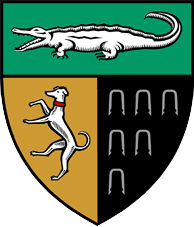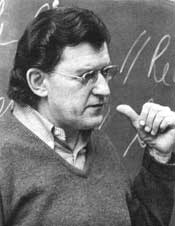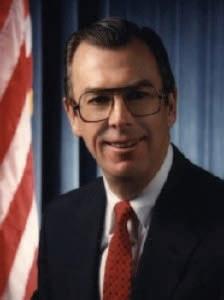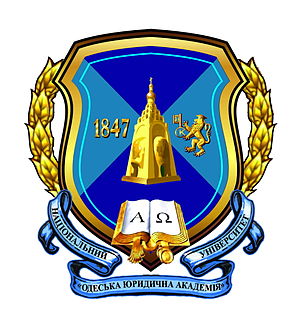An Alford plea, in United States law, is a guilty plea in criminal court, whereby a defendant in a criminal case does not admit to the criminal act and asserts innocence. In entering an Alford plea, the defendant admits that the evidence presented by the prosecution would be likely to persuade a judge or jury to find the defendant guilty beyond a reasonable doubt.
Griswold v. Connecticut, 381 U.S. 479 (1965), is a landmark case in the United States about access to contraception. The case involved a Connecticut "Comstock law" that prohibited any person from using "any drug, medicinal article or instrument for the purpose of preventing conception." The court held that the statute was unconstitutional, and that "the clear effect of [the Connecticut law ...] is to deny disadvantaged citizens ... access to medical assistance and up-to-date information in respect to proper methods of birth control." By a vote of 7–2, the Supreme Court invalidated the law on the grounds that it violated the "right to marital privacy", establishing the basis for the right to privacy with respect to intimate practices. This and other cases view the right to privacy as a right to "protect[ion] from governmental intrusion."
The judiciary of Germany is the system of courts that interprets and applies the law in Germany.

Yale Law School is the law school of Yale University, located in New Haven, Connecticut. Established in 1824, it has been the top-ranked law school in the United States by U.S. News and World Report every year since the magazine began publishing law school rankings in the 1980s.

John Marshall Harlan was an American lawyer and jurist who served as an Associate Justice of the U.S. Supreme Court from 1955 to 1971. Harlan is often called John Marshall Harlan II to distinguish him from his grandfather John Marshall Harlan, who served on the Supreme Court from 1877 to 1911.

The Michigan State University College of Law is a private law school in East Lansing, Michigan affiliated with Michigan State University. Established in 1891 as the Detroit College of Law, it was the first law school in the Detroit, Michigan area and the second in the state of Michigan. In October 2018, the college began a year-and-a-half process of becoming fully integrated into Michigan State University, changing from a private to a public law school.

Guido Calabresi is an American legal scholar and Senior United States Circuit Judge of the United States Court of Appeals for the Second Circuit. He is a former Dean of Yale Law School, where he has been a professor since 1959. Calabresi is considered, along with Ronald Coase and Richard Posner, a founder of the field of law and economics.

The Michael E. Moritz College of Law is a public law school founded in 1891 and located in Drinko Hall on the main campus of the Ohio State University in Columbus, Ohio. The school is accredited by the American Bar Association and is a charter member of the Association of American Law Schools.
Evan H. Caminker is a Dean Emeritus of the University of Michigan Law School. As Dean, he succeeded Jeffrey S. Lehman, who resigned to become president of Cornell University. Caminker was appointed Dean just as the United States Supreme Court issued a landmark ruling upholding the constitutionality of the Law School's affirmative action admissions policies, which had been challenged in a lawsuit filed by the Center for Individual Rights.

Wayne State University Law School is the law school of Wayne State University in Detroit. Wayne Law is located in Midtown, the City of Detroit's Cultural Center. Founded in 1927, the law school offers Juris Doctor (J.D.), Master of Laws (LL.M.), and minor in law degree programs. Wayne Law's more than 11,000 alumni include judges, justices, law firm partners and government officials working in every major market in the United States and at least 17 foreign countries.

Zolton Anton Ferency was an American lawyer, political activist and Professor of Criminal Justice at Michigan State University (MSU).

James Leo Ryan is an inactive Senior United States Circuit Judge of the United States Court of Appeals for the Sixth Circuit.
Pamela Susan Karlan is an American professor of law at Stanford Law School. A leading legal scholar on voting rights and political process, she served as U.S. Deputy Assistant Attorney General for Voting Rights in the United States Department of Justice Civil Division from 2014 to 2015.
Bridget Mary McCormack is the Chief Justice of the Michigan Supreme Court, a position she has held since January 9, 2019. She is a member of the Democratic Party. Prior to her election to the court as associate justice in 2012, she was a professor at the University of Michigan Law School in Ann Arbor. She taught criminal law and legal ethics and oversaw the law school's clinical programs as associate dean of clinical affairs. Her academic work focused on practical experience in legal education.
Barry E. Friedman is an American academic and one of the country's leading authorities on constitutional law, policing, criminal procedure, and federal courts, working at the intersections of law, politics and history. Friedman teaches a variety of courses including Judicial Decisionmaking, Federal Courts and the Federal System, and Criminal Procedure: Fourth and Fifth Amendments, as well as a seminar on Democratic Policing. He writes about judicial review, constitutional law and theory, federal jurisdiction, judicial behavior, and policing. His scholarship appears regularly in the nation's top law and peer-edited reviews.
Robert P. Young Jr. is a former Justice of the Michigan Supreme Court. Young was first appointed to the Michigan Supreme Court in 1999, elected in 2000 and 2002, and again won reelection in 2010 for a term ending in 2019. Justice Young announced he would be retiring from the court at the end of April 2017. Young is a self-described judicial traditionalist or textualist. In June 2017, Young announced his intentions to run against Debbie Stabenow in the 2018 senate race, but later dropped out saying he could not raise enough money for his campaign.
Richard W. Garnett is the Paul J. Schierl / Fort Howard Corporation Professor of Law, a Concurrent Professor of Political Science, and the founding Director of the Notre Dame Program on Church, State & Society at Notre Dame Law School. He teaches in the areas of criminal law, constitutional law, First Amendment law, and the death penalty. He has contributed to research in such topics as school choice and Catholic social teaching. His articles have appeared in a variety of prominent law journals, including the Cornell Law Review, the Georgetown Law Journal, the Michigan Law Review, and the UCLA Law Review. He also regularly appears in The New York Times, USA Today, and The Wall Street Journal and as a guest on National Public Radio.

Translate uk:Національний університет «Одеська юридична академія» to English
Brian C. Kalt is an American legal scholar and writer. He has taught at Michigan State University College of Law in East Lansing since July 2000. He received tenure in 2006, and has been a full professor and the Harold Norris Faculty Scholar since 2010. He teaches Torts and Administrative Law. His research focuses on structural constitutional law, the presidency, and juries.
Beverly Blair Cook was an American professor and political scientist. She is best known for her work regarding judicial behavior, public opinion and judicial decisions, and the selection of female judges.







